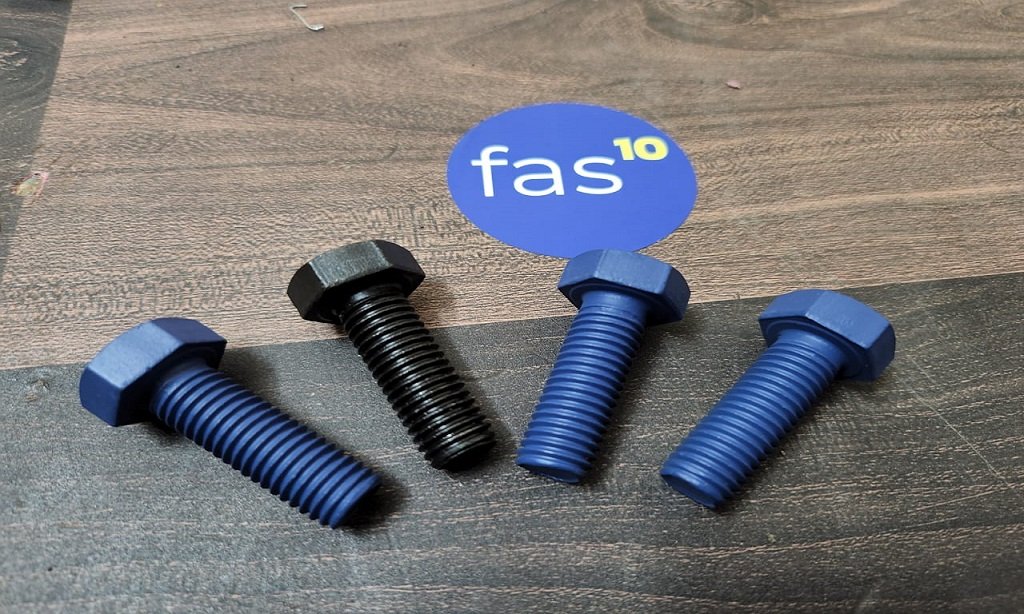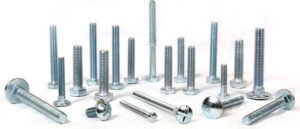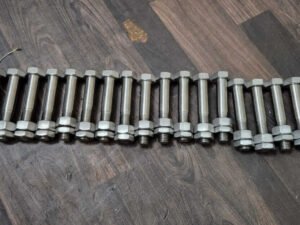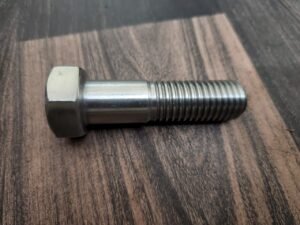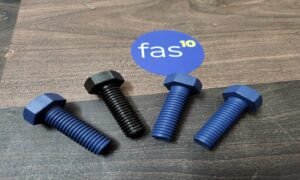Which type of fastener coating should be used indoors?
At the time of choosing any product, quality is the most crucial factor to consider. Regarding fasteners, quality is determined by the durability and robustness of the product. Customers desire to purchase fasteners that will last for a long time. The application of fastener such as where and how determines which coating is the most logical choice.
Because fasteners connect or combine pieces, it is critical to employ the appropriate type to maintain the structure’s integrity. Similarly, applying the appropriate coatings to your fasteners helps ensure that they will have the longest possible lifespan by shielding the underlying metal from damage. The lifespan of a fastener can be significantly shortened by prolonged contact with severe environments or chemicals, particularly if it is not coated accordingly. Getting the appropriate coating for the work at hand is crucial.
When it comes to knowing how resistant coatings are to corrosion, manufacturers rely on salt spray testing results. Generally, a coating is considered to be of higher quality if it can withstand the application of salt spray for more hours before the onset of oxidation or rust. (It is important to note that higher corrosion ratings typically correspond with a product with a higher price.)
Types of fastener Coatings:
- Teflon
Teflon is a rigid and long-lasting plastic that is frequently utilized in the production of fasteners for use in the home. It is resistant to moisture and other environmental variables. indeed, it is less robust than specific other polymers and should not be used in an outdoor setting. - Brass, Bronze, Chrome or Nickel-Plated
Brass is a malleable metal resistant to corrosion and in applications found in the domestic sphere. On the other hand, it might be more weatherproof and better suited for usage in locations where it is likely to be exposed to the elements. Because of their aesthetically pleasing surface, these coatings are frequently used on fasteners that will be in plain view (think decorative work). Brass and bronze are two metals that have excellent corrosion resistance. Chrome and nickel-plated finishes offer some corrosion resistance to the metal, although in most cases, the aesthetic finish is prioritized over the metal’s strength and protection. Chrome and nickel-plated finishes offer some level of corrosion resistance. - Clear and Yellow Zinc
Zinc is a metal resistant to corrosion and is in the production of fasteners for use in the home. Because it is not as strong as other metals and is prone to rusting when exposed to the elements, it is not appropriate for use in environments with exposure to them. Zinc is among the most often used coatings for fasteners that are available. Zinc coating is a form that protects against rust and is generally affordable to apply; as a result, zinc-coated fasteners are ideal for use in humid situations. The electro-plating process gives yellow zinc its distinctive golden hue, from which it derives its name. Clear zinc coatings have a different effect. Yellow zinc-coated fasteners are an excellent choice for applications in which the product is highly likely to come into contact with water or other types of liquids. - PTFE
The resilient plastic known as polytetrafluoroethylene, or PTFE, is frequently utilized in the production of fasteners for use in the home. It is resistant to moisture and other environmental variables. however, it is not as robust as specific other polymers and should not be used in an outdoor setting because of this. - Hot Dip Galvanized
Standard zinc plating is quite common, but hot-dipped galvanized coatings give a thicker layer of zinc on the surface of the fastener. As a result, this type of coating is superior in terms of its ability to resist corrosion. Hot-dip galvanized coatings, which also go by the abbreviation HD, are perfect for usage in the open air, especially in coastal regions with higher salt concentrations. When compared to fasteners with other coatings, HD-coated fasteners take a noticeably more protracted amount of time to erode. - Electro Galvanized
This form of coating, referred to as EG and used as a thinner layer of zinc, provides economical protection against corrosion. Kitchens and bathrooms, for example, are typical locations for installing EG fasteners because these rooms require less protection against corrosion. Most of the fasteners used in roofing are also electro-galvanised. - Grey Phosphate
Another common coating form designed to increase the lifespan of fasteners is called grey phosphate. Because phosphate coatings lower friction, they are an excellent choice for use on fasteners that have to insert. Phosphate coatings offer some degree of improvement in corrosion resistance as well. This coating should only use inside, and treated lumber should never attach with grey phosphate-coated nails. - Ceramic Coated
Ceramic coatings do not provide the same level of protection against corrosion as stainless steel. Still, they are frequently employed in maritime applications because of their widespread availability and ability to deflect saltwater spray. These coatings are frequently developed to withstand salt spray tests lasting 500 or 1,000 hours. - Polycarbonate
Polycarbonate is a type of plastic that is both tough and long-lasting, and it is used in the production of fasteners for use in the home. It is resistant to moisture and other environmental variables. even so, it is not as robust as specific other polymers and cannot be used in an outdoor setting.
While selecting fasteners Coatings, one must consider the unique needs of the application and the environment. It is done to ensure that the fasteners can operate effectively and will not fail due to the effects of the environment. Every one of the available coatings can be used to safeguard fasteners. If you choose the incorrect layer, it could negatively impact your fastener’s performance. Nevertheless, it is abundantly clear that the application and the required corrosion resistance determine the need of special coating.

